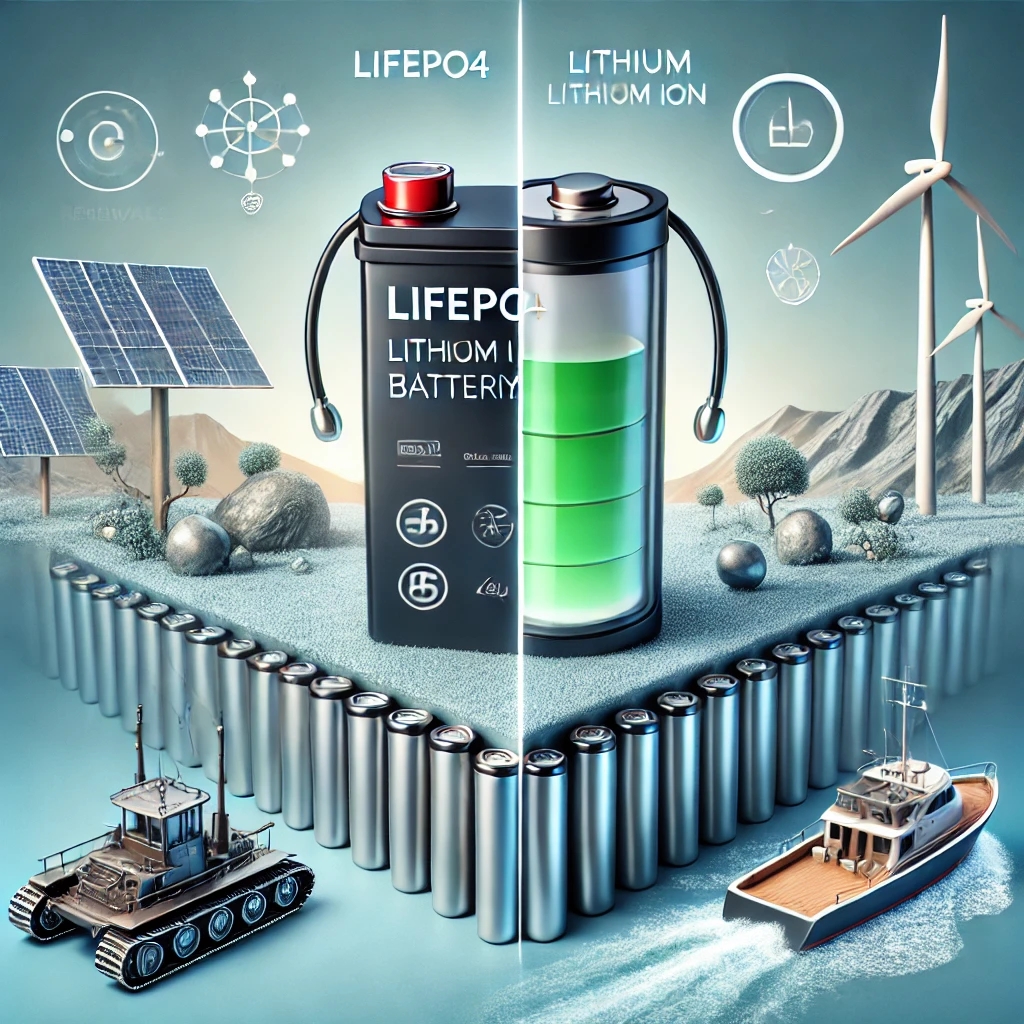Is LiFePO4 Battery the Same as Lithium Ion Battery?

Is LiFePO4 Battery the Same as Lithium Ion Battery?
When it comes to energy storage, two of the most common battery technologies are LiFePO4 (Lithium Iron Phosphate) and Lithium Ion (Li-ion). While they may appear similar at first glance, they have significant differences in performance, safety, and applications. Understanding these differences is key, especially when choosing batteries for specific uses such as maritime energy, disaster preparedness, or recreational boating.
1. What is LiFePO4?
LiFePO4 batteries are a type of Lithium Ion battery. However, they use iron phosphate as the cathode material, which makes them unique. These batteries are known for their increased stability and longer lifespan compared to regular Li-ion batteries.
LiFePO4 batteries are typically more resilient in extreme temperatures, making them ideal for saltwater applications such as pontoon boats or bass boats, where consistent power is crucial in challenging environmental conditions. Additionally, their stability reduces the risk of overheating or catching fire, a common concern with traditional Li-ion batteries.
2. LiFePO4 vs Lithium Ion: Key Differences
Safety: One of the biggest advantages of LiFePO4 over regular Li-ion batteries is safety. LiFePO4 is chemically more stable and less likely to catch fire, making it a safer choice for emergency applications, such as disaster-resistant backup power systems or blackout protection.
Cycle Life: LiFePO4 batteries can last significantly longer than traditional Li-ion batteries, often providing over 2000 cycles before their performance begins to degrade. This makes them a more cost-effective long-term solution, especially for disaster preparedness power systems.
Energy Density: Traditional Li-ion batteries often have a higher energy density, meaning they can store more energy in a smaller size. However, this comes at the cost of longevity and safety, areas where LiFePO4 excels.
Temperature Tolerance: LiFePO4 batteries perform better in high temperatures, making them well-suited for maritime energy systems and outdoor applications like disaster power supplies in hot climates.
3. Applications of LiFePO4 Batteries
LiFePO4 batteries are increasingly popular in various industries due to their unique advantages. For example, they are often used for recreational boating and sailboats, where consistent power is needed, and space is limited. They are also an excellent choice for portable disaster batteries and backup energy storage, ensuring that there is a reliable power source during critical situations.
These batteries are also preferred in saltwater applications due to their resistance to corrosion, making them ideal for the maritime industry. Furthermore, as LiFePO4 batteries for disaster recovery systems, they provide a resilient, long-lasting energy solution.
4. Conclusion
While LiFePO4 batteries are a type of lithium-ion battery, they offer a distinct set of benefits that make them the preferred choice for certain applications, especially where safety, longevity, and resilience are critical. Whether for disaster preparedness, maritime energy, or recreational boating, LiFePO4 batteries are proving to be an indispensable part of modern energy storage solutions.
READ MORE:











